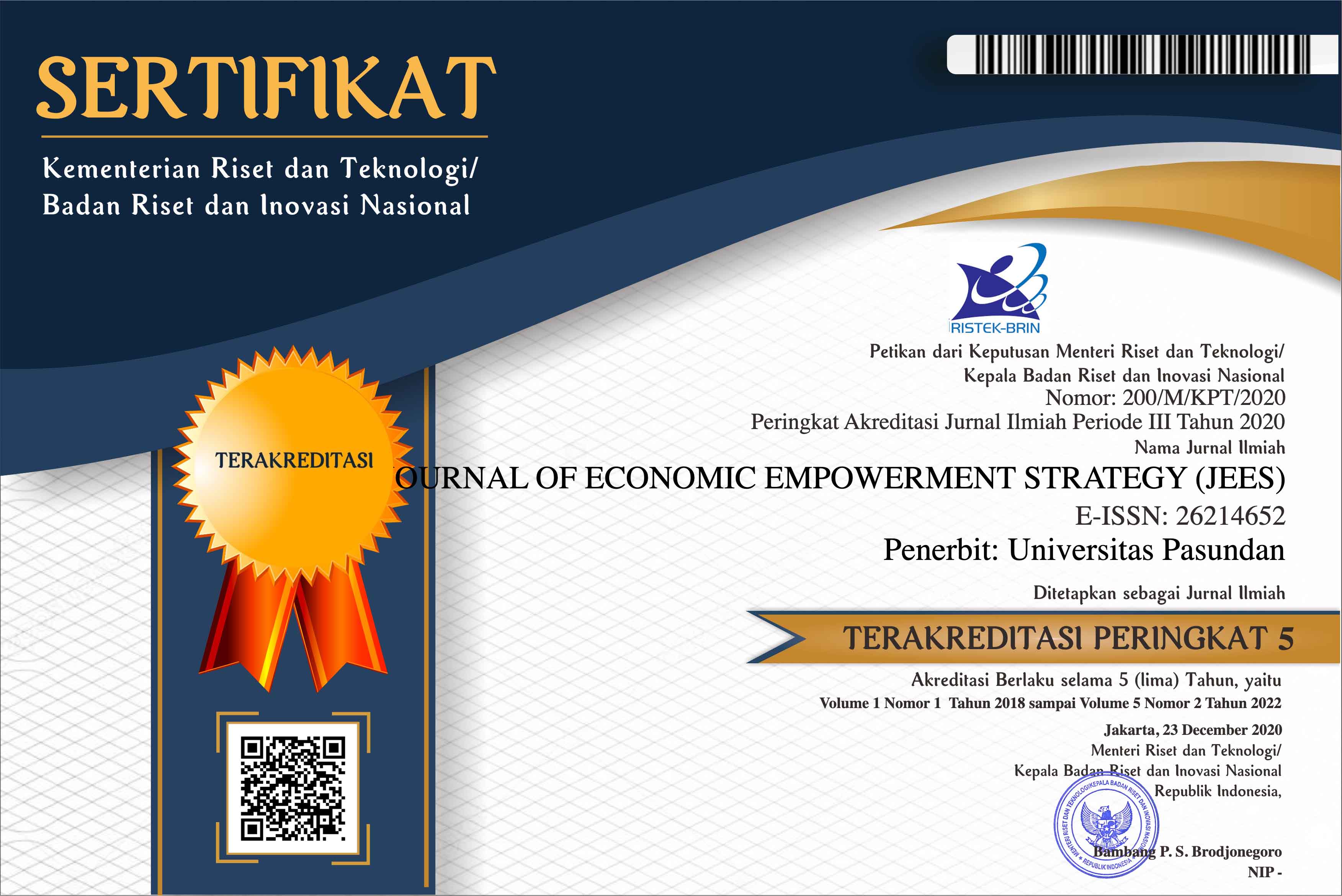THE ROLE OF ADVOCACY SERVICES, TALENT DEVELOPMENT AND MEMBER SATISFACTION WITH THE PERFORMANCE OF THE SERANG REGENCY SPN MANAGEMENT
DOI:
https://doi.org/10.23969/jees.v6i1.7238Keywords:
Advokasi, kepuasanAbstract
Low Human Resource Performance is a common problem in developing countries such as Indonesia, from a survey conducted in February 2022 by BPS Banten Province. Human development indicators are indisputable, especially in attack districts, which are related to very small performance, which is only 66.38%. It is in the third lowest order after pandeglang district and lebak district. And the performance of the SPN organizational management is one of the problems that needs to be examined related to the performance of human resources in Serang regency. Efforts to improve HR performance are the responsibility of all levels of society and especially for workers and the management of worker organizations in the SPN Organization. for this reason, this research was carried out in order to provide solutions to improve the performance of SPN management to make it even better. With research variables, the role of advocacy services, talent development, member satisfaction, and the performance of SPN management.
In data analysis, the author applied the calculation method of structural equation modelling partial least square (SEM-PLS) analysis. with a total sample of 398 employees who are members of SPN throughout Serang Regency and use Stratified Random Sampling data analysis tools using Smart PLS and SPSS using Likert calculation guidelines. The exogenous variables in this study are advocacy services using 10 indicators, talent development 13 indicators, the role of satisfaction 10 indicators, and endogenous performance variables administrators with 11 indicators. The number of hypotheses tested in this study was 7 hypotheses.
The results of the outer model test show that of the 44 indicators used, there are 4 invalid struments becausethey have a loading factor value of < 0.70, while the rest are as many as 40 indicators are valid. The conclusion of the hypothesis test results obtained 5 hypotheses accepted and 2 hypotheses in has no effect, with details:
- There is no significant influence between Advocacy services and satisfaction.
- There is a significant influence between talent development and satisfaction.
- There is a significant influence between Advocacy Services and Performance.
- There is a significant influence between Talent development and performance.
- There is a significant influence between Satisfaction and Performance.
- There is no significant influence between Advocacy for Performance through Satisfaction.
- There is a significant influence between talent development on performance through satisfaction.














